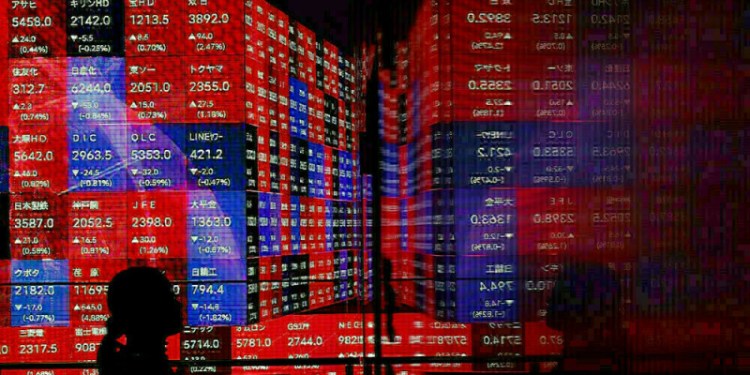LONDON: European and US stock markets pushed higher on Monday as trade and geopolitical tensions eased, analysts said.
“On a very quiet Monday a positive, 24,500-crossing opening from the Dow Jones allowed the European indices to enjoy the pound and euro’s struggles against a hawkish dollar,” Spreadex analyst Connor Campbell told AFP.
European indices had earlier been knocked lower by news that business activity in the eurozone continued to grow at a lacklustre pace in April, bringing fresh doubt on the strength of the economic recovery in Europe.
Data monitoring company IHS Markit flagged a slight slowdown in France, where strikes were interrupting a resurgence unleashed by government reforms. Powerhouse Germany was also off strong activity seen earlier in the year.
But a weak euro and pound are generally supportive of European exporters, and European indices turned positive as the opening of trading on Wall Street approached.
“Still, the gains were only meagre, with investors curiously resistant to the positive progress seen on North Korea and the avoidance of a US-China trade war. Both items were the defining macro-movers in March and April,” said Campbell.
North Korean leader Kim Jong Un on Saturday called a halt to nuclear tests and intercontinental missile launches ahead of a planned summit with US President Donald Trump.
Hopes rose the China-US trade spat can be resolved after US Treasury Secretary Steven Mnuchin said he was “cautiously optimistic” of finding agreement.
“He also said he was considering a trip to China,” Rodrigo Catril, senior strategist at National Australia Bank, said in a note to clients, adding that the head of China’s central bank had spoken about allowing more foreign access to the country’s market.
That helped the dollar edge up against the safe haven yen, as well as against the euro and pound.
Earlier, Asian stock markets largely closed lower, with technology firms extending last week’s sharp losses as investors fret over the future of the once-lucrative smartphone sector, traders said.
Meanwhile, oil prices fell back from 3.5-year highs struck last week on comments by Saudi Energy Minister Khaled al-Faleh on Friday that the global market has the capacity to absorb higher prices.
Saudi Arabia and Russia had also said at an OPEC meeting in Jeddah they would press on with a production cap deal to defend higher prices.
Focus this week is also on a slew of US data, including economic growth and personal consumption. A number of US companies are also to release their first quarter earnings, including Google parent Alphabet, Boeing, ExxonMobil and Coca-Cola.
Source: Brecorder



























